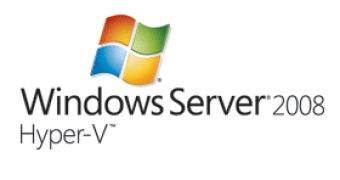Despite the fact that Windows Server 2008 Service Pack 1 was released to manufacturing on February 4, 2008, and that February 27 is the official global launch of the server platform, there are aspects of the product still cooking over at Redmond. An illustrative example in this regard is Windows Server 2008 Hyper-V Beta. Microsoft's hypervisor-based server virtualization technology went into Beta stage in mid-December 2007, as Windows Server 2008 hit the Release Candidate 1 phase, and will not be completed until well into 2008. And although Hyper-V will indeed evolve until it will be released to manufacturing, there is one area of the product that will remain virtually untouched.
According to Ben Armstrong, Microsoft Program Manager on the core virtualization team, the performance of installing an operating system into Hyper-V will remain inferior to what Virtual Server and Virtual PC have to offer.
"Yes - operating system installation on Hyper-V is slower than on Virtual Server / Virtual PC. No - I do not expect this to change much for the first release of Hyper-V. Yes - once you are up and running and have integration services installed performance of Hyper-V virtual machines is much better than Virtual Server / Virtual PC," Armstrong stated.
While Hyper-V virtual machines are faster than what Virtual Server and Virtual PC have to offer, once the operating systems have been installed and they are up and running, the actual deployment experience on Hyper-V will not improve from the Beta to the RTM build.
"With Virtual Server and Virtual PC we only had emulated devices to use - and as a result we spent a lot of time optimizing and tweaking the performance of these emulated devices. When we implemented the emulated devices under Hyper-V we had to remove many of these optimizations due to the entirely different architecture of Hyper-V. We did not, however, spend much time re-optimizing the emulated devices on Hyper-V because we had the new synthetic device architecture where we have focused our attention for performance tuning," Armstrong added.
In other words, Hyper-V emulated devices are and in fact will also remain slower than Virtual Server / Virtual PC emulated devices. This is the reason for the inferior OS installing experience. Still, at the same time, Hyper-V synthetic devices beat Virtual Server / Virtual PC emulated devices in performance, and this will not change.

 14 DAY TRIAL //
14 DAY TRIAL //